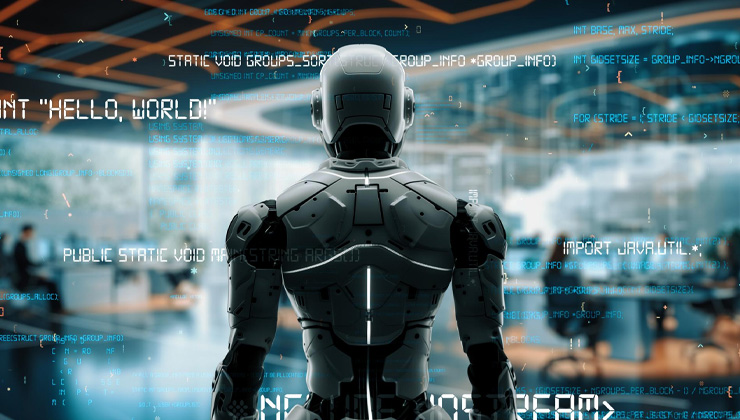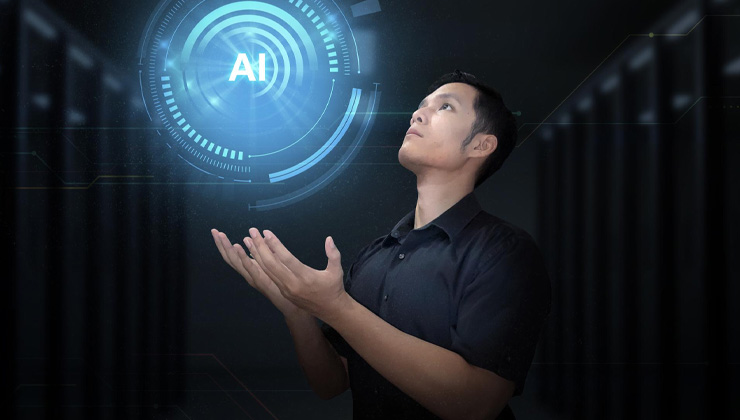
Artificial Intelligence (AI) is no longer a distant fantasy found only in the pages of science fiction. It has grown into one of the most influential and transformative technologies of our time. From its early days of conceptual curiosity to its present-day applications, AI has undergone a dramatic evolution, with its future looking even more promising. To truly appreciate the significance of AI, it’s essential to explore its past, examine its current impact, and consider what the future holds for this groundbreaking field.
The concept of artificial intelligence dates back to the mid-20th century when visionaries began contemplating machines capable of mimicking human intelligence. Early AI pioneers, such as Alan Turing, laid the foundation for the field by proposing theoretical frameworks for machine learning and reasoning. The famous Turing Test, introduced in 1950, set the stage for the question: Can machines think? This era was marked by ambitious ideas, but limited technological capability.
In the 1950s and 1960s, AI research primarily focused on developing algorithms and rules-based systems, which were designed to simulate basic human problem-solving. Though progress was slow, these early developments laid the groundwork for what was to come. Researchers created programs that could solve mathematical problems, play simple games like chess, and process symbolic data, proving that machines could perform tasks once thought to require human intelligence.
Fast forward to today, and AI is embedded in nearly every facet of modern life. From voice-activated assistants like Siri and Alexa to complex algorithms running behind social media platforms, AI powers countless applications. Machine learning, a subfield of AI that enables systems to learn from data without being explicitly programmed, has revolutionized industries such as healthcare, finance, and entertainment.
In healthcare, AI algorithms assist doctors in diagnosing diseases more accurately, while in finance, AI-driven systems help detect fraudulent transactions and predict market trends. Self-driving cars, once considered a futuristic concept, are now being tested on roads, thanks to advancements in AI technologies. Natural language processing (NLP), a branch of AI, enables chatbots to carry on conversations with humans, transforming customer service experiences.
The rapid advancement of AI in recent years is largely due to increased computing power, the availability of vast datasets, and refined algorithms. The widespread adoption of AI is revolutionizing how businesses operate, how we interact with technology, and even how we live our everyday lives.

The future of AI is filled with exciting possibilities. Experts predict that AI will continue to evolve at an exponential rate, leading to more sophisticated systems capable of performing tasks with little to no human intervention. Autonomous machines, such as drones and robots, could transform industries like manufacturing and logistics by making processes more efficient and cost-effective.
Moreover, AI has the potential to revolutionize the field of medicine even further by enabling more personalized treatments, improving diagnostic accuracy, and speeding up drug discovery. In education, AI-powered learning platforms could offer tailored experiences for students, enhancing the way knowledge is shared and absorbed.
However, with great power comes great responsibility. As AI grows more advanced, ethical questions surrounding privacy, security, and job displacement will need to be addressed. Striking a balance between harnessing the benefits of AI and ensuring that it is used responsibly will be one of the greatest challenges moving forward.
The evolution of artificial intelligence, from its conceptual origins to its present-day applications, demonstrates how far we have come in our quest to create intelligent machines. AI is no longer just a buzzword but an integral part of our daily lives, shaping industries and pushing the boundaries of what technology can achieve. As we look toward the future, the potential for AI to continue transforming society seems limitless. However, it’s crucial that we navigate this journey thoughtfully to ensure that AI serves humanity’s best interests.
Consumers Guide membership grants you early bird access to the latest tech gadgets on the market, as well as huge discounts that aren't available to anyone else. Sign up below to receive all the latest deals on tech gadgets that are ideal as gifts for any occasion, before they're available to the mass market. Membership of Consumers Guide is completely free - no strings attached! Once you sign up, you will occasionally receive newsletters sent to your inbox with all the latest and greatest gadget discounts and deals - you also can unsubscribe at any time. To join for free, simply enter your e-mail below and click "Subscribe":